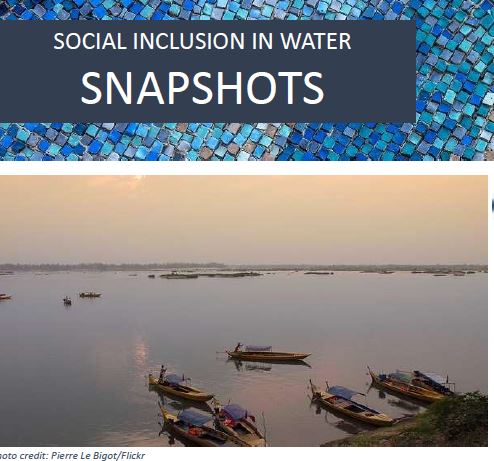Social Inclusion in Water Snapshots. Lao and Cambodia
The Mekong is one of the largest rivers of the world, flowing all the way from China to Vietnam. The basin is shared by six countries, China and Myanmar in the Upper Mekong Basin, and Lao PDR, Thailand, Vietnam and Cambodia in the Lower Mekong Basin (LMB).1 Almost 70 million inhabitants of the LMB are poor in economic terms and rely directly or indirectly on the natural resources of the Mekong River for their livelihoods and food security. To address poverty, ensure food security, and economic development of the region, LMB countries have committed to the sustainable management of water resources in the Mekong Basin. A series of World Bank supported projects for Mekong Integrated Water Resource Management (IWRM) aim to assist Lao PDR, Vietnam, and Cambodia in the sustainable management of water and livelihood. Among other, these projects are supporting citizen engagement activities, such as participatory consultation in planning, implementation, and evaluation, with the aim to strengthen the integrated management of water resources at the national and transboundary levels. This snapshot highlights select citizen engagement activities, with a particular attention to gender and inclusion, in the Cambodia and Lao PDR projects.
